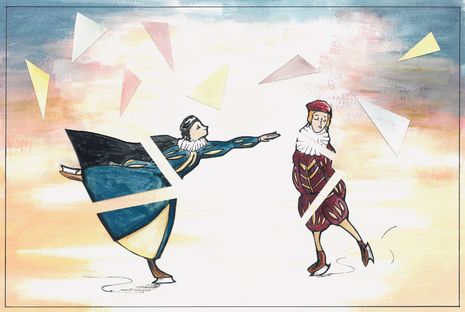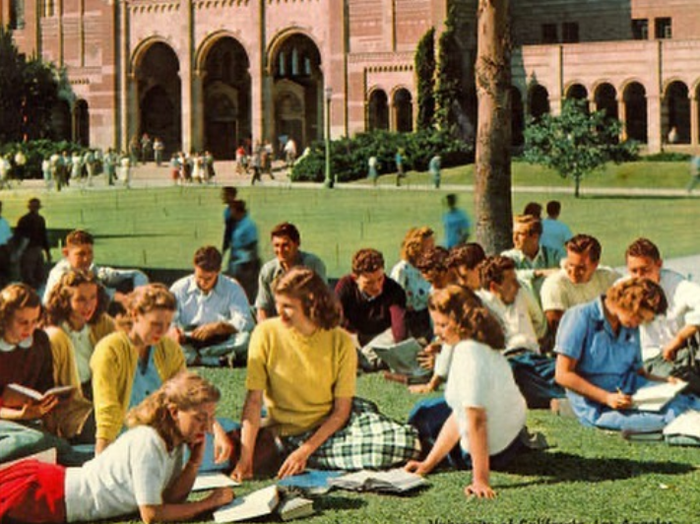Orlando’s insanity kept me sane
Louis Fisher continues our series on ‘escapism reads’, with his discovery of Virginia Woolf’s Orlando and how it taught him to accept change in the most baffling of circumstances

This year, national lockdown and the summer holiday provided me with a rare opportunity to re-engage with literature after three years of science, and so I compiled a reading list. Among the authors I particularly wanted to explore was Virginia Woolf. Through furthering my queer and feminist engagement it had become clear to me that Woolf was a cultural icon I could no longer ignore.
Her gay romances and antipatriarchal writings evidenced her radical lifestyle, and the plethora of analyses of her works her impact. I grew up, and still live, in the South East of England, where Woolf lived during her most prolific period, and during my childhood visited many of her properties, along with those of her lover Vita Sackville-West, to whom Orlando is devoted. Clearly, the life of Virginia Woolf had already impacted my own, but I still hadn’t investigated what she delivered through her writings. Thus, I felt obligated to return to literature with this book.
“Orlando offers not only escapism, but also inspiration; to thwart mundanity in isolation it is necessary to travel to worlds of unbounded imagination”
Orlando is a perfect book for a lockdown, and for introduction to Virginia Woolf. Described as one of her lightest reads, yet still deeply nuanced and considered, in many ways it delivers the story that you search for within it. I first read the book without knowledge of Woolf’s other literature or personal life, so I laid back and allowed the deeply descriptive and absurd chapters to roll over each other. This delivered a biography which blurred the line between reality and fiction: historical references were seen through our fictional subject Orlando, themselves a depiction of the non-fiction Vita Sackville-West. It’s clear that Woolf plays fact and fiction not as antagonists, but complements, with the injection of one heightening the impact of the other.
This world-bending certainly provides one route of escapism, but one could also focus on the biographical passage of time throughout Orlando’s life, or his to her changing gender expression, or the unconventional romances in which he, and later she, partakes. Furthermore, each of these themes can be considered in a great range of literary context. If you approach the book as a love letter to Vita Sackville-West the feminist themes may be particularly striking, or perhaps the winking and nudging between the two dominates. Both of these, however, may go unnoticed by someone who has contextualised the novel in its time of writing and amongst Woolf’s other works, who may be taken by the relative directness of Woolf’s delivery for such an expansive story. These multifaceted properties of Orlando are not unique, but certainly improve its re-read potential and audience appeal, and aid entry to some of Woolf’s heavier works.
After some research into Woolf’s personal life at the time of her writing Orlando, a reread of the opening pages allows the feminist audacity in her writing to shine through. Her passage which leads to the line “the Queen had come” manages to not only disguise the sensuality of her writing, but also amplify it. Line after line of vaginal metaphor also reads as effortless character introduction, with rather explicit double entendres which snuck past the male-dominated publishing houses and me with them. The suggestion of such candid sexuality within the monarchy, with heavy emphasis on clitoral stimulation (represented by Orlando’s house within the valley), perfectly demonstrates the characteristic gall of Virginia Woolf. I imagine that the innuendo is not as subtle to a woman reading, and especially not her lover Vita, and so the awareness of Woolf to dupe patriarchal censorship of the time through female metaphor displays not only her insight, but also her defiance.
Also key amongst Orlando’s themes is change. Orlando lives through three centuries, overseeing the ‘comings’ and goings of several English Monarchs, love interests, and even a change in her own sex, all received with effortless nonchalance. Beyond the triumphant trumpeting passage in which the Orlando moves from male to female, heralded by ‘peals of truth’, Orlando’s change of sex is completely unquestioned by our narrator. Any encroachment on this truth by the reader is entirely dismissed by Woolf, who asks that we “let biologists and psychologists determine. It is enough for us to state the simple fact; Orlando was a man till the age of thirty; when he became a woman and has remained so ever since.”
Woolf’s insouciance, her insistence that we let things fall as they choose, is a luxury we may not enjoy in a health crisis, but one we certainly can in our literary escapes from it. As a unique academic year rolls out, uncertainty dominates our lives, leaving questions on how to adapt to a ‘new normal’ of reduced liberty and interaction. For this, Orlando offers not only escapism, but also inspiration; to thwart mundanity in isolation it is necessary to travel to worlds of unbounded imagination, to mix reality with reverie, and to maintain our sanity through voyages of fiction.
 News / Cambridge academics sign open letter criticising research funding changes22 February 2026
News / Cambridge academics sign open letter criticising research funding changes22 February 2026 News / Student and union protesters hold ‘Trans Liberation Solidarity Rally’ 24 February 2026
News / Student and union protesters hold ‘Trans Liberation Solidarity Rally’ 24 February 2026 News / Union speakers condemn ‘hateful’ Katie Hopkins speech14 February 2026
News / Union speakers condemn ‘hateful’ Katie Hopkins speech14 February 2026 Features / Beyond the porters’ lodge: is life better outside college?24 February 2026
Features / Beyond the porters’ lodge: is life better outside college?24 February 2026 Theatre / Footlights Spring Revue? Don’t Mind if I Do!25 February 2026
Theatre / Footlights Spring Revue? Don’t Mind if I Do!25 February 2026










